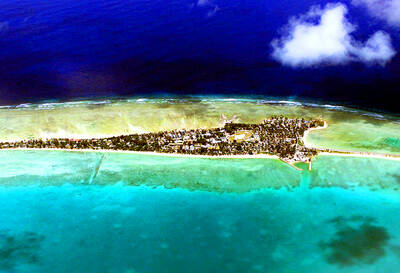Two dozen prisoners were cleared for transfer from Guantanamo Bay last year even though US military panels found they still posed a threat to the US and its allies.
Dozens more were cleared even though they didn't show up for their hearings. One Saudi arrested in Afghanistan was approved for release after offering a peculiar account that he had gone to the Taliban-controlled country to lose weight.
Pentagon documents show seemingly inconsistent decisions to release men declared by the administration of US President George W. Bush to be among the US' most-hardened enemies. Coupled with accusations that some detainees have been held for years on little evidence, the decisions raise questions about whether they were arbitrary.
Human-rights groups contend the documents show the military panels, known as Administrative Review Boards (ARB), often are overridden by political expediency at Guantanamo, where about 340 men are still held.
"What it says on your passport is more important than what it says in your ARB," said Ben Wizner, an attorney for the American Civil Liberties Union, noting that European citizens at Guantanamo were among the first to get out amid intense lobbying by their countries. "It's all about diplomatic pressure."
The Pentagon created the ARB process in 2004 as the US Navy base in Guantanamo Bay, Cuba, was filling up with men captured around the world in the war on terrorist groups. It said the boards would "help ensure no one is detained any longer than is warranted, and that no one is released who remains a threat to our nation's security."
The boards hold sessions in an air-conditioned trailer, hearing testimony from shackled detainees and making recommendations on whether to transfer, release or continue to hold the men. The final decisions are made by Deputy Secretary of Defense Gordon England, who is not bound by the recommendations, but who, officials say, usually follows them.
The Pentagon released transcripts and memos last month from last year's hearings.
Based on those sessions, England ordered 273 inmates kept at Guantanamo and 55 transferred to authorities in other nations. He didn't order any outright releases, but most detainees transferred from Guantanamo have been freed soon after arriving home.
The heavily censored documents indicate testimony before the panels often had little effect on the outcome. Of the 55 detainees cleared for transfer to their homelands or countries of residence, only 14 participated in their hearings. And 24 found to still pose a threat were ordered transferred by England anyway.

DISASTER: The Bangladesh Meteorological Department recorded a magnitude 5.7 and tremors reached as far as Kolkata, India, more than 300km away from the epicenter A powerful earthquake struck Bangladesh yesterday outside the crowded capital, Dhaka, killing at least five people and injuring about a hundred, the government said. The magnitude 5.5 quake struck at 10:38am near Narsingdi, Bangladesh, about 33km from Dhaka, the US Geological Survey (USGS) said. The earthquake sparked fear and chaos with many in the Muslim-majority nation of 170 million people at home on their day off. AFP reporters in Dhaka said they saw people weeping in the streets while others appeared shocked. Bangladesh Interim Leader Muhammad Yunus expressed his “deep shock and sorrow over the news of casualties in various districts.” At least five people,

ON THE LAM: The Brazilian Supreme Court said that the former president tried to burn his ankle monitor off as part of an attempt to orchestrate his escape from Brazil Former Brazilian president Jair Bolsonaro — under house arrest while he appeals a conviction for a foiled coup attempt — was taken into custody on Saturday after the Brazilian Supreme Court deemed him a high flight risk. The court said the far-right firebrand — who was sentenced to 27 years in prison over a scheme to stop Brazilian President Luiz Inacio Lula da Silva from taking office after the 2022 elections — had attempted to disable his ankle monitor to flee. Supreme Court judge Alexandre de Moraes said Bolsonaro’s detention was a preventive measure as final appeals play out. In a video made

It is one of the world’s most famous unsolved codes whose answer could sell for a fortune — but two US friends say they have already found the secret hidden by Kryptos. The S-shaped copper sculpture has baffled cryptography enthusiasts since its 1990 installation on the grounds of the CIA headquarters in Virginia, with three of its four messages deciphered so far. Yet K4, the final passage, has kept codebreakers scratching their heads. Sculptor Jim Sanborn, 80, has been so overwhelmed by guesses that he started charging US$50 for each response. Sanborn in August announced he would auction the 97-character solution to K4

SHOW OF FORCE: The US has held nine multilateral drills near Guam in the past four months, which Australia said was important to deter coercion in the region Five Chinese research vessels, including ships used for space and missile tracking and underwater mapping, were active in the northwest Pacific last month, as the US stepped up military exercises, data compiled by a Guam-based group shows. Rapid militarization in the northern Pacific gets insufficient attention, the Pacific Center for Island Security said, adding that it makes island populations a potential target in any great-power conflict. “If you look at the number of US and bilateral and multilateral exercises, there is a lot of activity,” Leland Bettis, the director of the group that seeks to flag regional security risks, said in an